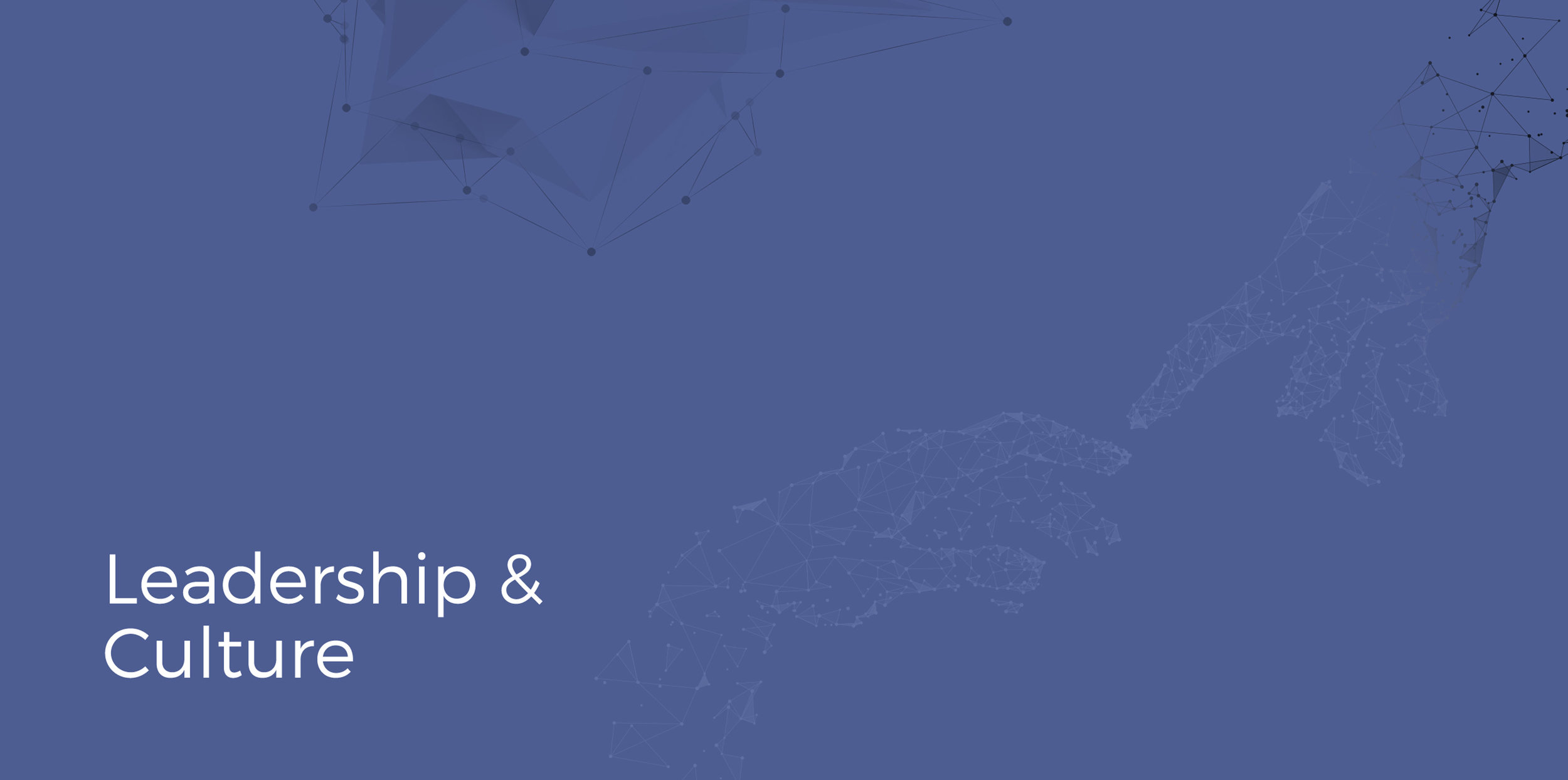Leadership & Culture
Leadership is taking people towards a better future. This means that the leaders see a better future, which implies vision, and the ability to establish a picture in the mind of that which may not presently be a reality in ourselves, our teams and the organisation. We always start with self leadership, a creative gift we all possess and can develop, ie, imagination and of course innovation. The old saying ‘if you do what you have always done, you will get what you’ve always got’ – nothing changes. Leadership is more about the future. Leaders are not happy just because things are going well, they see how much better things can be personally and with the organisation.
This is the first and most important learning for leaders, understanding that vision, innovation, and new learning, is about culture and strategy. We talk about strategic planning but it’s really strategic thinking. The belief that this is the domain of the few at the top must be vigorously challenged, instead it is the domain at the top, the middle and the bottom.
The High Performance Leadership Coach Program coaches people to ‘think’ strategically. What does that mean? It means being pro-active and not reactive, changing the belief that we need a crisis before we change. This is the thinking that we develop, teach, encourage, support and coach to our direct reports and to our whole team. This is changing our mindset and creating some head space for moving the inside-outside vision of people and culture, to an imperative vision on the same level as the operations and strategy, the outside-inside vision.
Strategic and pro-active thinking is important, but it’s not urgent, so it’s not run as a process. We don’t make time to be quiet, still or reflective, so we can actually hear. You see it’s only when it is quiet and still that we really hear, like walking in the bush or sitting by the river. With computers, TV, talking, meeting after meeting, iPhones, iPads etc, we have become addicted to urgency, adrenaline and stimulation. Instead we are human doings, not human beings. Strategy requires undivided attention and silence, it takes time and you can’t rush it. Therefore you may need to close the door or find some space to think and to just be.
Transforming performance to deliver strategy is the role of the leader. The people and culture transformation must be run as a process. We must see its importance over the urgent if we want to really be strategic. The coaching process enables the leader to tap into what can’t be seen on the surface, as you only see behaviours and results, you miss a big chunk of the iceberg - the thoughts that dictate their behaviours and results are part of the unconscious. We must tap into this real cause of performance – thinking and feeling to coach and inspire change as an inside-outside job. Coaching is the strategy and the tool you can use to bring your people along and see the vision for the future, and create a proactive, positive, problem-solving atmosphere to surround people, teams and organisations. Changing culture is the great unseen inside game and until you realise it is the game, the outside operations will not be as effective in implementing strategy.
Your styles of leadership both visionary and coaching, are your two most significant styles of leadership and the rest are about emotional intelligence. That always comes back to the single most important aspect of leadership, which is the ability to manage yourself. Being able to manage your responses, your energy, your resonance and that’s also proactive and strategic, and most importantly your routine, in order to put you in the best state to perform. High Performance requires high energy, and that requires recovery, so don’t forget if you manage yourself, you will have more energy. If you create good routines you will sleep better, function with more clarity, and engage more positively with your team. Stay focused on your 120-Day Action Planner and your goals.
You will have completed your direct one on one feedback by now. We hope this has helped to refocus and refine your attention on to areas that can give you an opportunity to strengthen your case for personal leadership development. Keep enjoying the leadership journey, keep your journal, use the study group sessions to practice the coaching in triads or pairs and openly share feedback and support. Effective communication is based on creating and expanding the pool of shared meaning. To assist ourselves in gaining that, asking insightful questions and open questions provides more opportunity.
Effective Communication Questions
Explore our collection of effective communication questions to enhance your conversations. These thought-provoking prompts can help you gain valuable insights and find solutions. Embrace this tool to foster openness and enjoy the enriching journey of leadership learning and discovery.

